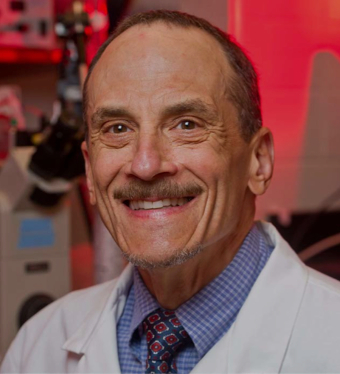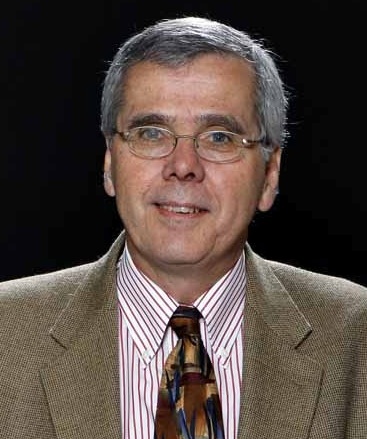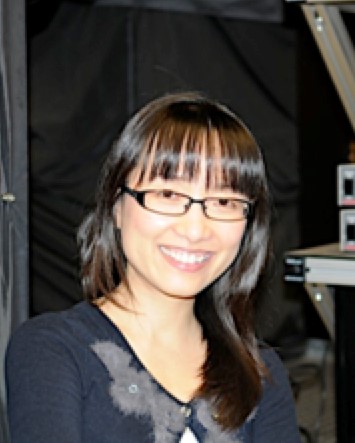Featured Member Archives
Meet Emeritus Member Geraldine Clough, B.Sc., Ph.D.
My route to a personal chair in Vascular Physiology in the Faculty of Medicine, University of Southampton, UK was via a BSc in Physiology (1973) and PhD (1977) on ‘’The influence of the interstitium on the mechanical and transport properties of the microvasculature’’ at University College London, a Research Fellowship in the University of Oxford and Lectureship at Imperial College London, UK. It also included a brief career pause for the birth of my two children after which my return to research in the University of Southampton was supported by one of the very first Wellcome Trust Re-entry Fellowships (1996-2000) and University Award (2000-2005). I remained in the University of Southampton as University Reader and then Professor until my retirement in 2018. I am now Professor Emeritus there. Read More
Posted February 1st, 2019

Meet Lai Wen, Ph.D.- from the La Jolla Institute for Immunology
New Postdoctoral Member
"My current research is focused on understanding key mechanisms of leukocyte adhesion to the blood vessel wall during inflammation. In particular, I study how integrin activation is regulated during leukocyte adhesion. To this end, I use state-of-the-art imaging technology to "watch" signal transduction in real time in living cells."
Posted December 10, 2018
.jpg)
Meet Sara Nunes de Vasconcelos
Sara is an Assistant Scientist in the Division of Experimental Therapeutics at Toronto General Hospital Research Institute Her lab focuses on large scale tissue engineering for cardiovascular regeneration, vessel maturation and disease modeling in complex microtissues.
"What keeps you busy?"
Travelling has recently been a big part of my life as a PI. Conferences, invited talks and grant review panels have been keeping me away from home and the lab more and more!
"If you weren’t a scientist, what other profession would you have pursued?"
Maybe something that would require knowledge of and ability to communicate in multiple languages such as diplomacy or international organizations.
Read more about Sara and her lab at http://www.vasconceloslab.com/

Meet Anthony Bruce - University of Virginia
I am a Lab Specialist 4 in the Department of Biomedical Engineering at University of Virginia. I manage the laboratory of Dr. Shayn Peirce-Cottler. I received my M.S. in Biology from James Madison University.
I am currently working on a project evaluating the effects of a modified mRNA on angiogenesis and wound healing in a mouse model of type II diabetes, while exploring the use of boron-based polymeric nanoparticles to serially monitor oxygenation levels in these wounds. In addition, I continue to research hemodynamic and structural changes within microvascular networks during arteriogenesis by coupling confocal and intravital fluorescence microscopy with photoacoustic microscopy in collaboration with the laboratory of Dr. Song Hu at UVA.
In my spare time, I enjoy running Dungeons and Dragons games for my friends, visiting craft breweries, playing corn hole and croquet, going to metal concerts, and traveling to warm places with beaches.

Meet Ian R. Lamb, University of Guelph
I am currently a PhD candidate at the University of Guelph under the mentorship of Dr. Coral L. Murrant, professor and associate chair of the Department of Human Health and Nutritional Science.
In general terms, my research focus aims at investigating how skeletal muscle is able to communicate to the surrounding microvasculature in order to ensure blood flow delivery is sufficiently matched to the metabolic demand of skeletal muscle during rest and exercise. More specifically, I am interested in the burgeoning idea of a redundant control paradigm that may underlie skeletal blood flow regulation. This hypothesis suggests that the antagonism of one vasodilator (be it pharmacological or pathological) can be compensated for by the augmented effect of another vasodilator, thereby safeguarding the tight coupling between blood flow and skeletal muscle metabolism. While this hypothesis is in its infancy it has received recognition by Canadian Society for Exercise Physiology, The Journal of Physiology, North American Vascular Organization among others. Through various travel awards (including The Microcirculatory Society’s own Benjamin W. Zweifach Graduate Student Travel award) I have had the privilege of presenting this work locally, nationally and internationally!
Aside from research I also serve as the chair of the MCS trainee committee, a newly formed initiative aiming to promote the engagement of trainees within the society as well as increase the society’s social media presence. To learn more about the Microcirculatory Society please visit our Facebook page or tweet us @The_MCSociety. If you have any questions or would like to learn more about the trainee committee, please email me.

Meet Charles Thodeti, Ph.D.
Dr. Thodeti’s current research focus is on the mechanical control endothelial cell function, angiogenesis and stem cell differentiation. Cells within all living tissues encounter mechanical forces continuously within a changing dynamic environment, and increasing evidence suggests that mechanical forces regulate cell growth, differentiation, motility, protein synthesis and gene expression. Importantly, mechanical forces are critical regulators of cardiovascular physiology and pathophysiology. Therefore, understanding how cells sense and convert mechanical signals into biochemical signals, mechanotransduction, could offer novel therapeutic targets for treatment of various cardiovascular diseases and in vitro engineering of organs and tissues such as blood vessels. Recently his laboratory has paid special attention to the role of a mechanosensitive ion channel, TRPV4, and its potential involvement in cardiac remodeling and pathological angiogenesis in the retina and in tumors.
Dr. Thodeti is an Assistant Professor in the Department of Integrative Medical Sciences, Northeast Ohio Medical University (NEOMED). He obtained his Ph.D. in Physiology and Biochemistry from S.V. University, India. He then completed post-doctoral training at Lund University, Sweden and later held a research faculty position at the University of Copenhagen, Denmark. Before joining NEOMED, Dr. Thodeti was an instructor at Harvard Medical School. He has published more than 50 peer-reviewed articles in the fields of cardiovascular physiology, cell and molecular biology, and biochemistry. Currently, his laboratory is supported by funds from the National Institutes of Health and American Heart Association. He also currently serves as an editorial board member for Circulation Research, Scientific Reports and the Journal of Cancer Science and Therapy.

The current research interest of Dr. Doggett (University of South Florida) focuses on microvascular permeability following hemorrhagic shock/trauma combined with acute alcohol intoxication. Binge drinking is a serious problem in the United States, producing $223.5 billion in healthcare costs. Nearly 40% of injured patients admitted to the emergency room have intoxicating blood alcohol concentrations. Intoxicated trauma patients exhibit aggravated hemodynamic instability following hemorrhage, are significantly more hypotensive, and require greater volumes of resuscitation fluids compared to non-intoxicated patients. His lab has demonstrated that acute alcohol intoxication causes microvascular hyperpermeability in the mesenteric microcirculation of rats. More recent work has investigated microvascular permeability following a fixed-pressure hemorrhage combined with acute alcohol intoxication. We hypothesize that the loss of central fluid volume due to elevated hyperpermeability is directly responsible for the potentiated hypotension exhibited by intoxicated trauma patients. Currently, we are investigating methods to enhance the microvascular barrier and attenuate hyperpermeability following hemorrhage. The August Krogh Young Investigator Award is named in honor of microcirculatory scientist August Krogh, who received the Nobel Prize in 1920 for the first descriptions of blood flow control through capillaries and arterioles based on tissue oxygen demand, this annual award is intended for a graduate student or a Ph.D./M.D. in the early stages of a research career. This award is presented to encourage excellence in microcirculatory research by new, young investigators.

Meet Zhichao Fan, Ph.D. of the La Jolla Institute for Allergy and Immunology
One of Dr. Fan’s research interests is focusing on studying the mechanisms of leukocyte rolling and arrest during inflammation in the microcirculation. Dr. Fan exploited microfluidics with molecularly defined surfaces and high resolution three-color total internal reflection microscopy to imaging the molecular dynamics during leukocyte rolling and arrest under high resolution in vitro, and using intravital microscopy to study leukocyte rolling and arrest in vivo. Adhesion molecules such as integrins were mainly focused.
Another research interest of Dr. Fan, is monitoring rare circulating cells, such as circulating tumor cells, in microcirculation using in vivo flow cytometry.
 Dr. Steven Segal Named the 2016 Landis Awardee
Dr. Steven Segal Named the 2016 Landis Awardee
Professor Steven Segal received his B.A. and M.A. degrees in Physical Education and Exercise Physiology from the University of California at Berkeley followed by a dual Ph.D. in Kinesiology and Physiology from the University of Michigan. He then undertook postdoctoral training at the University of Virginia in the laboratory of Dr. Brian Duling. After serving on the faculty of the Noll Human Performance Laboratory at Pennsylvania State University, Dr. Segal moved to Yale School of Medicine where he rose through the academic ranks to tenured Professor in Cellular and Molecular Physiology. He then moved to the Department of Medical Pharmacology and Physiology at the University of Missouri-Columbia, where he currently holds the title of Margaret Proctor Mulligan Professor in Medical Research. Dr. Segal is also an Investigator in the Dalton Cardiovascular Research Center.
With over three decades in microcirculation research, Professor Segal has built an international reputation for his foundational work on the local control of blood flow, particularly with respect to the roles of microvascular endothelium, vascular smooth muscle and perivascular nerves in the moment-to-moment control of blood flow in resistance networks. His work on underlying mechanisms and functional consequences of cell-to-cell communication in the vascular wall has provided new insight into our understanding of how local blood flow is coupled to tissue metabolic demand. Dr. Segal's work is valued by his peers for its rigor and technical innovation. Over the years his laboratory has developed powerful new approaches to resolve the cellular and subcellular processes involved in the microvascular control of blood flow and oxygen delivery with an emphasis on skeletal muscle during exercise.
Professor Segal is the author/co-author of over 100 peer-reviewed articles and more than 20 invited reviews and book chapters. He serves as Reviewing Editor for the Journal of Physiology and has served as Associate Editor for Microcirculation. He is on the editorial board of several other leading journals, including the American Journal of Physiology: Heart and Circulatory Physiology and the Journal of Vascular Research.
Professor Segal has also served on numerous study sections and review groups for the NIH and other funding agencies. His own research has been funded continuously by the NIH for over 30 years, culminating in a prestigious MERIT Award that extends into 2019. Throughout his career, Dr. Segal has been an active and engaged member of scientific societies. He served the Microcirculatory Society in several capacities including President, as a member of Executive Council and as a member and chair of MCS committees. Dr. Segal is also an Established Investigator of the American Heart Association, a Fellow of the American College of Sports Medicine, a Fellow of the AHA Council on Basic Cardiovascular Sciences, and a Fellow of the American Physiological Society Cardiovascular Section. Dr. Segal has received prestigious scientific awards, including the MCS Outstanding Young Investigator Travel Award, the Abbott Microcirculation Award from the European Society for Microcirculation, and the Malpighi award, also from the ESM. Professor Segal's dedication to microvascular research is embodied in his mentoring of the students and postdoctoral fellows who have in turn become successful independent investigators, academicians and clinicians.

D. Neil Granger, 2015 Benjamin W. Zweifach Award Recipient

Cam Ha Tran, University of Calgary
In addition, she had the idea to implement a tail artery cannula in the mouse to perfuse agents of interest, plus a fluorescent dye, into the systemic circulation so that we might image the arrival of drugs to the brain. This technique works surprisingly well and is part of her published protocol paper.
Cam Ha's first publication as a first author (co-authored by Dr. Gordon) was published in Frontiers Cellular Neuroscience. Her manuscript detailed how one can achieve sub-cellular level imaging of the brain of fully behaving mice, while also minimizing animal stress. Cam Ha demonstrates how behavioral data can be captured simultaneously with two-photon fluorescence signals. She also shows other possible applications of this technique by 1) monitoring dynamic changes to blood flow in response to sensory stimulation and 2) measuring Ca2+ signals from synthetic and genetically encoded Ca2+ indicators in astrocytes. The method she developed will facilitate acute two-photon fluorescence imaging in awake, active mice and help link cellular events within the brain's microcirculation to whole animal behavior.
In another project, she demonstrates the role of astrocytes in brain blood flow control. In vitro data clearly shows that Ca2+ elevations in astrocytes influence blood vessel diameter, yet in vivo data fails to observe such astrocyte Ca2+ signals during functional increases in blood flow. Notably, the in vivo data is collected under anesthesia or sedation, which reduces astrocyte Ca2+ signaling. Cam Ha's data clearly shows robust spontaneous and evoked astrocyte Ca2+ signals in her awake mouse preparation.

"The contractile activity of vascular smooth muscle cells is critical to the ability of small arteries to regulate blood flow in response to fluctuations in intraluminal pressure (the "Myogenic Response")." In regard to this, I am interested in the mechanotransduction processes which underlie how smooth muscle cells sense and respond to mechanical forces. In particular, whether the angiotensin II type 1 receptor (AT1R) can act as a mechanosensor in resistance arterioles and contribute to myogenic responsiveness. An additional interest relates to whether pressure-dependent vasoconstriction is modulated by negative regulation of AT1R signaling by RGS (Regulators of G-protein Signaling) proteins under physiological and pathophysiological conditions." Kwangseok is a recipient of a 2015 MCS Zweifach Student Travel Award.

Evandro M. Neto Neves, Indiana University
 Kerri-Ann Norton, Ph.D., Johns Hopkins School of Medicine
Kerri-Ann Norton, Ph.D., Johns Hopkins School of Medicine

